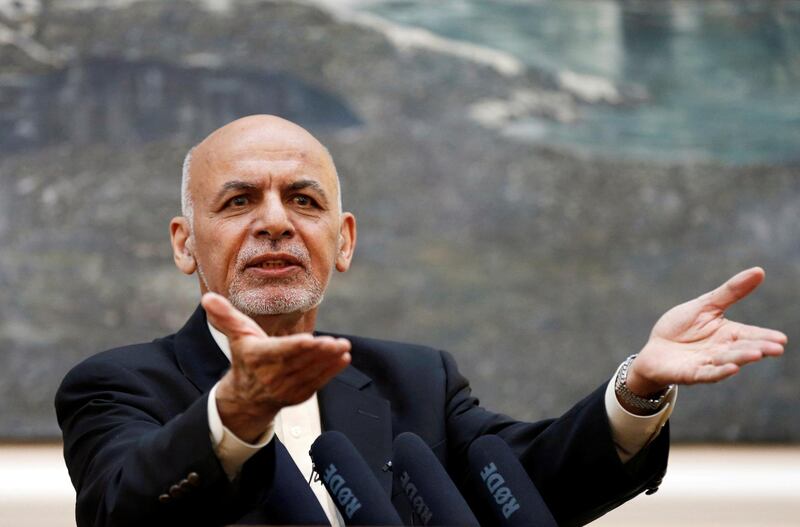Afghan President Ashraf Ghani announced a conditional ceasefire with the Taliban from Monday to mark the Muslim Eid Al Adha holiday, following a bloody week of conflict with the militant group.
Taliban sources told Reuters their leaders had also provisionally agreed a four-day truce during the annual Islamic feast of sacrifice, though supreme leader Sheikh Haibatullah Akhunzada still had to give his final approval.
The group said it would free hundreds of prisoners but did not elaborate.
Mr Ghani says the conditional ceasefire will begin provided the Taliban respects it, and last for three months until the Prophet Mohammed’s birthday which is celebrated in Afghanistan on November 21.
The Afghan president announced the ceasefire on social media.
“We call on the leadership of the Taliban to welcome the wishes of Afghans for a long lasting and real peace, and we urge them to get ready for peace-talks based on Islamic values and principles,” he wrote.
“The Afghan government has removed all obstacles for a long lasting peace through these unprecedented steps”.
Mr Ghani’s peace offering comes after renewed clashes in the northern province of Faryab and a five-day battle for the southern city of Ghazni. Afghan forces backed by the US military managed to push the Taliban back but at least 150 soldiers and 95 civilians were killed in the fighting.
_______________
Read more:
Afghan president Ashraf Ghani visits Ghazni after Taliban raid
Afghan government shaken by bloodstained week after Taliban and ISIS attacks
Fall of military base and battle for Ghazni expose failures in Afghan military strategy
_______________
The offensive in Ghazni, which started on August 10 was fought back after five days of fighting by a coalition of Afghan National Army soldiers and US and Nato airstrikes. At least 100 security forces and 35 civilians were killed in the siege.
The truce will only cover the Taliban and will not include other groups such as ISIS, which has stepped up its attacks against Afghan security personnel and civilians in recent years.
In June, Mr Ghani’s government and the Taliban observed an unprecedented three-day ceasefire for Eid Al Fitr but the militant group rejected Kabul’s request for an extension.
Offensive military operations for Nato ceased in 2014, but four years later the organisation is still providing training and counterterrorism support, in which the United States plays a major role.
The Taliban say there will be no peace while the US is in the country, and the group are yet to comment on the ceasefire, casting doubt on the strength of the deal Mr Ghani has brokered.
ISIS also operate in Afghanistan, meaning despite a ceasefire with the Taliban, violence may still continue. Last week a suicide bomber detonated in a packed classroom, killing 37.





